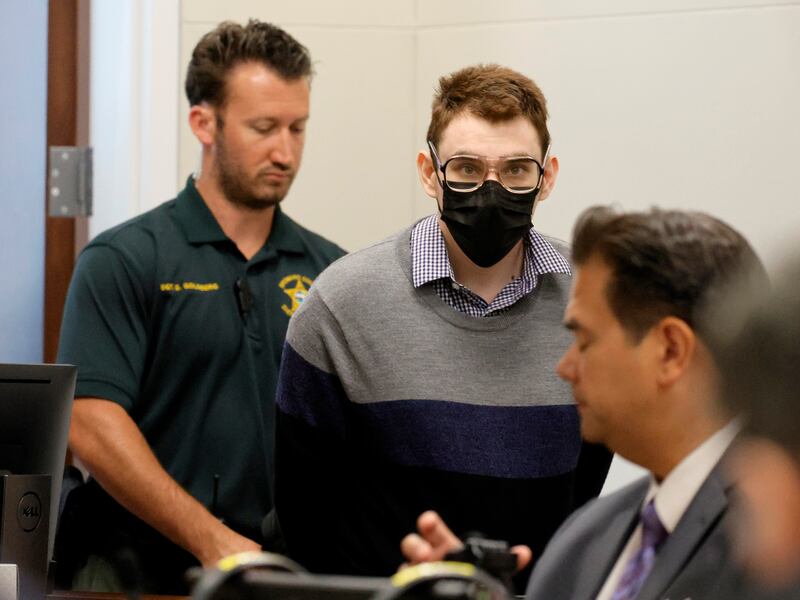The gunman who killed 17 people at Marjory Stoneman Douglas High School in 2018 appeared in court Monday at the start of the penalty phase of his trial to determine whether he will be executed or sentenced to life in prison without parole.
The latest: The trial for Nikolas Cruz, 23, began Monday, after his defense attorneys unsuccessfully tried to delay it, claiming the “wave of emotion” in response to recent shootings in Buffalo, New York, and Uvalde, Texas, would make for an unfair trial, according to CNN.
- Lead prosecutor Mike Satz addressed the 12-member jury, focusing on the timeline of the shooting on Feb. 14, 2018, and how Cruz apparently returned to previously wounded victims and killed them with a second volley of shots, according to The Associated Press.
- Satz quoted from a video Cruz recorded three days before the shooting, in which he claimed, “I’m going to be the next school shooter of 2018.” He also detailed how the gunman escaped from the school with other fleeing students, then bought a frozen drink from Subway and walked into a nearby McDonald’s, according to The New York Times.
- The defense didn’t address the court on Monday morning, instead opting to give opening statements after the prosecution makes its case.
What’s next? The trial is expected to last at least a few months, during which jurors are expected to hear from survivors and family members of the victims. Jurors may also visit the scene of the massacre in Parkland, Florida, which has been sealed for the last four years, according to CNN.
- Cruz pleaded guilty last October to 17 counts of first-degree murder and 17 counts of aggravated murder.
- In order to obtain a death sentence, prosecutors must prove at least one aggravating factor beyond a reasonable doubt. Prosecutors presented seven potential factors, including that the murders were “especially heinous, atrocious or cruel” and that they were committed “in a cold, calculated and premeditated manner,” according to The New York Times.
- The jury will then need to unanimously find that at least one aggravating factor exists, and then unanimously recommend the defendant be put to death. Without a unanimous decision, the default sentence would be life in prison without the possibility of parole.


